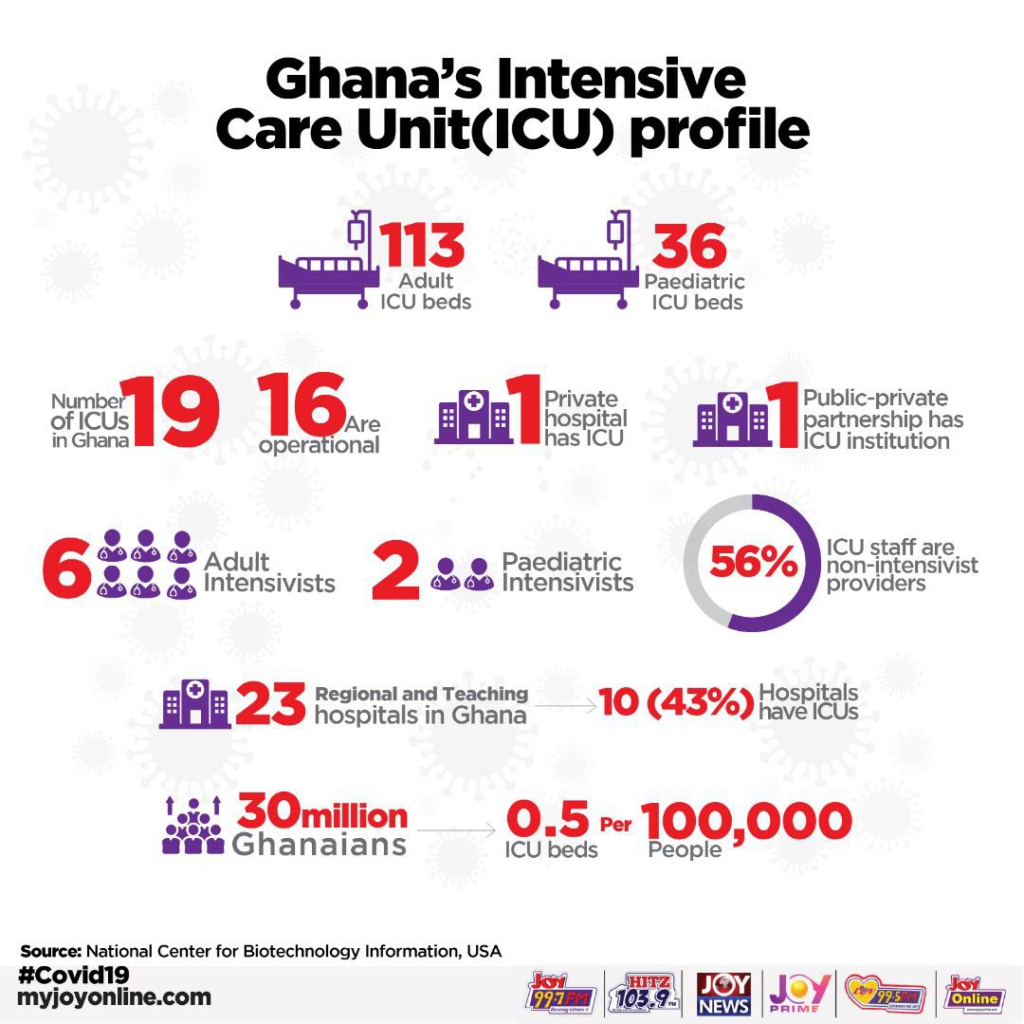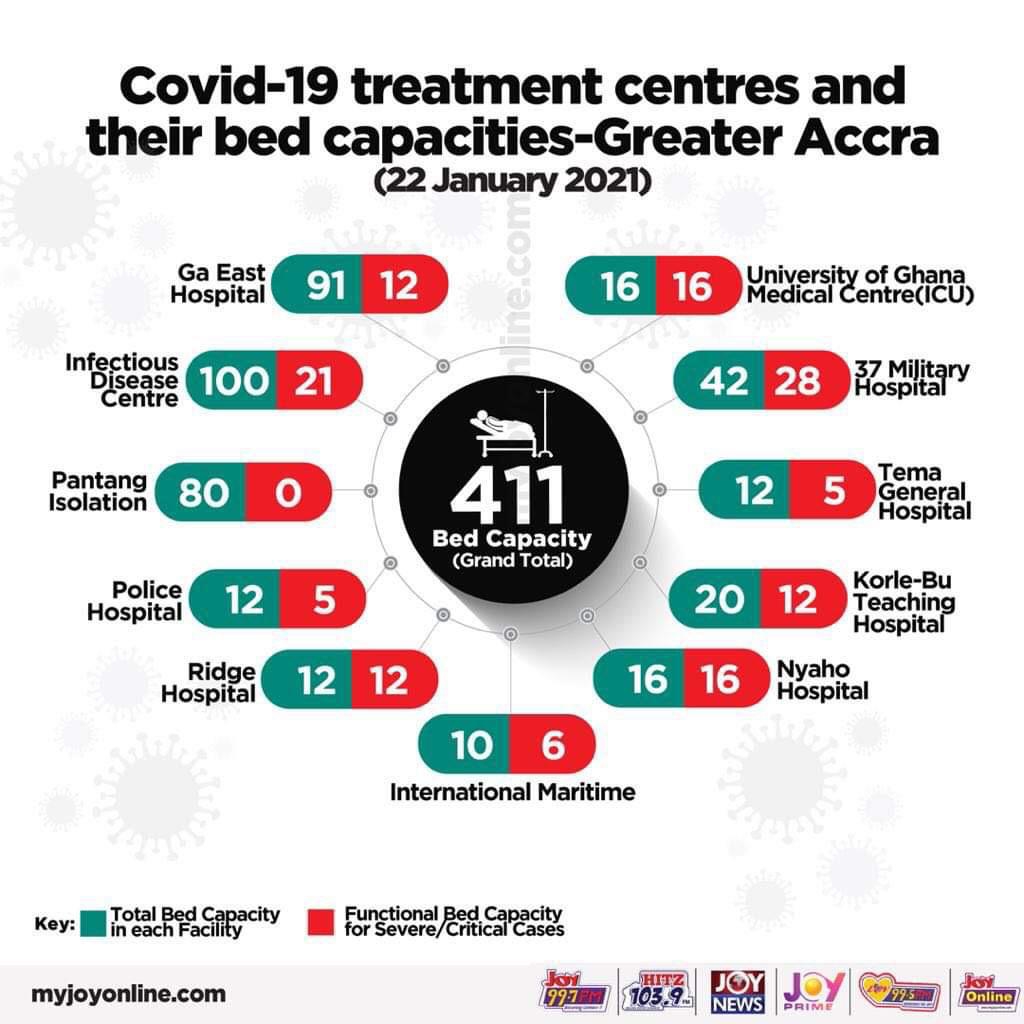Lecturer at the Global Health Department of KNUST, Dr John Amuasi has called for sentinel sites to be situated in various centres across the country to enhance random testing of the population.
According to him, this will help get accurate data on the rate of spread of the novel coronavirus in order to make a sharp determination regarding measures against the canker.
"This will give us an idea of how many positives we are churning out and then we can measure our rate of spread," he said.
Speaking on JoyNews' PM Express Monday, he explained that this will also assist in assessing the impact of the interventions by government on the pandemic.
"It quite surprises me that to date we have not set up this routine regular systematic approach. So we can ramp up testing all we want, but it will only be a function of how many symptomatic people are turning up at the hospitals, how many concerned people are opting to be tested," he explained.
Earlier on the show, Deputy General Secretary of the Ghana Medical Association (GMA), Dr Titus Beyuo had expressed his contentment with the reinstatement of certain restrictions by President Akufo-Addo but was worried that religious and educational institutions remained open.

He told host, Ayisha Ibrahim that more needs to be done to stem the virus spread as far as pupils are concerned, adding that he was “70% satisfied” with the latest directive.
However, Dr Amuasi argued that data available in Ghana and elsewhere suggest that the spread in schools is relatively low in the scheme of things except for the known threats associated with the gathering.
The Leader of Global Health and Infectious Diseases Research Group at KCCR believes aggressive sampling in the communities will be the most imperative decision to take if the concern cases about school contagion are any to go by.

"For me, rather than focusing the efforts on random sampling within the schools, I will continue to trumpet the need for random sampling at the community level because this is what will allow us to measure the real rate of spread at the national level.
Dr John Amuasi further explained that; "If you measure the rate of spread at the school level, it does not provide significant information for decision making because these are the same people that move back home and then infect their parent, grandparents and who they meet."
Ghana currently has 5,358 active case of Covid-19 out of a cumulative 67,010 confirmed cases.
As of January 29, 2021, the country had recorded 794 new cases, 416 deaths and 61,236 recoveries/discharges of the novel coronavirus.
Latest Stories
-
BOAD reaffirms commitment to energy transition and sustainable agriculture in West Africa
11 minutes -
10 kinds of women who have denied men the joy of fatherhood
51 minutes -
A father’s hurdles caring for son with Sickle Cell disease – John Dzido shares a fraction
1 hour -
GF Awards 2025: Thomas Partey wins Player of the Year for the third time
1 hour -
The women at the centre of Somalia’s construction boom
1 hour -
Volta region welcomes ICT empowerment drive for girls
1 hour -
Gov’t fulfils promise as phase II of Blekusu sea defence project begins in VR– James Gunu
2 hours -
GF Awards 2025: Doris Boduwaa wins Women’s Player of the Year
2 hours -
GF Awards 2025: Jerry Afriyie beats Ashiaku and Edmund Baidoo to Future Star award
2 hours -
Saudi clubs on alert as Salisu wants out of AS Monaco
3 hours -
Fathers Day: Mahama gets ‘amazing husband and a truly wonderful father’ ‘cuddle’ from Lordina
3 hours -
AviaDev Africa 2025: Zanzibar dazzled as leaders gathered to shape Africa’s aviation and travel future
3 hours -
Ghana’s Real Estate: A Booming but fiercely competitive market- Who’s Buying, Who’s Watching, and Where is the Market Headed?
4 hours -
Armwrestling : Civil Aviation courts Armwrestling for active and healthy lifestyle amongst staff
4 hours -
Thomas Partey crowned 2025 Ghana Footballer of the Year
5 hours

